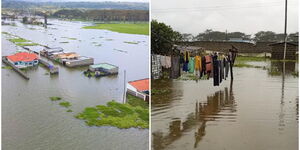Kenya is celebrating its first official Mazingira Day, a notable shift in the national calendar that marks a renewed focus on environmental conservation.
This public holiday, previously known as Utamaduni Day, was renamed when President William Ruto signed the Statute Law (Miscellaneous Amendments) Bill, which transformed a day of cultural heritage into one of environmental advocacy.
The history behind this holiday is as complex as its rebranding. It originally began as Moi Day, honouring former President Daniel Arap Moi, who ruled from 1978 to 2002. Moi intended the day to be one of compassion and volunteerism, emphasising service to others.
However, the promulgation of Kenya’s 2010 Constitution saw Moi Day scrapped from the list of national holidays. For nearly a decade, the day vanished from the public consciousness, leaving many wondering what its future held.
A High Court ruling in 2017 reinstated the holiday, renaming it Huduma Day. This was short-lived, as former Interior Cabinet Secretary Fred Matiang’i later renamed it Utamaduni Day in 2020. The holiday was meant to celebrate Kenya’s cultural heritage, but the constant changes left Kenyans confused about the true purpose of the day.
The rebranding of Utamaduni Day to Mazingira Day this year is seen as a bold move by the government to tackle the pressing environmental issues facing the country. Cabinet Secretary for Environment, Climate Change, and Forestry, Aden Duale, has called on all Kenyans to unite in protecting the environment.
Today, Mazingira Day is designed to promote environmental awareness and encourage tree-planting activities. The government’s ambitious goal of planting 15 billion trees by 2032 is at the heart of this initiative. Tree planting drives are expected to take place across the country, aiming to restore Kenya’s dwindling forest cover and combat the effects of climate change.
Duale stressed that Mazingira Day is not a day for grand celebrations but for practical action. He emphasised the need for Kenyans to focus on the triple threats of climate change, biodiversity loss, and pollution. He urged both the government and citizens to collaborate on projects that will protect the environment for future generations.
Environmental conservation has long been a topic of discussion, but Mazingira Day marks a turning point in how Kenya approaches this issue. The holiday is expected to foster a culture of environmental stewardship, encouraging individuals, communities, and organisations to take responsibility for protecting the planet.
This new direction aligns with global trends, where environmental issues are increasingly becoming central to government agendas. Kenya’s leadership on this front could also boost its reputation internationally, positioning the country as a regional leader in climate action.
While this may be the first official Mazingira Day, the hope is that it will grow into a powerful movement. By focusing on environmental education and action, the government aims to inspire Kenyans to take small but impactful steps toward a more sustainable future.












